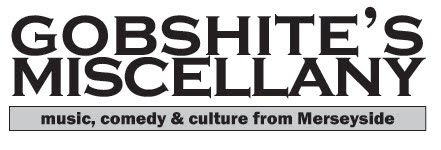His belief about London music is that the story telling elements of classic capital musicians like The Kinks, The Small Faces, Ian Dury and the Blockheads, Madness, Amy Winehouse, Lily Allen and Dizzee Rascal form part of an unbroken link between the singing broadside news sellers of the pre-17th Century, pre-newspaper era and the cockney market traders who became the template of music hall.
Furthermore, this thesis is deepened by evidence of the historic pool of talent who sought London as their Whittington-esque showbiz El Dorado over the years.
Musicians headed to London to make their name through the ages and so in the era of music hall they assumed the popular Cockney stereotype that the people loved. The showbiz and 'media' industries of the day were there, and as a result, in later years they went to London because that's where the work was. From music hall to big band, to jazz to folk and rock - even the feckin' Beatles did it - London continued to be a centre for the popular arts.
And although the Beatles didn't, to a large extent, become proto-Lahndaners, London, for most performers is a place where they go to reinvent themselves and to make money in the process. London is pragmatic and showy in equal measures - that's just what people do when they get there. It's the reason why outsiders like Damon Albarn, Jimmy Pursey, Paul Weller et al, suburban boys unsure of themselves, become more Cockernee than the the 'cor blimey, love a dove' natives.
As GM follower Tom McGeehan tweeted after the event today, the key point about Paul's talk was: "London is a city, Liverpool is a state of mind."
Paul's belief that Liverpool has a melodic, stoned and anarcho-surrealist pop sensibility is more in keeping with a debunking of the notion that there is a North South divide fashionable in deconstructions of British culture.
Rather, Paul said, we should think of Liverpool's position in Britain's musical canon more in terms of an East/ West divide that it fits in with a line that runs from the Western Isles of Scotland and takes in Glasgow, the Lake District, Wales and Cornwall.
In these terms, he said, Liverpool's melodic, slightly melancholic dispositions fit in with notions of a residual Celtic Twilight - of a place people may have gone to escape their previous malaises but are marooned because they haven't got to their desired final destinations of the USA or the new world - just like those who came to Liverpool in the first wave of Irish immigration in the mid 1840s.
Liverpool was not a place of ultimate emigration historically. People, either Irish, West Indian or Italian or Scandinavian stayed here not because they intended to, but because they hadn't enough money to go anywhere else. Through this necessity was born a virtue of new 'Scouseness'.
But the seagoing tradition of Liverpool in the time of its prosperity in the 19th and early 20th centuries, drove a collective imagination: dads and uncles came back from foreign lands with exotic stories and the sight of big ships and the eternal Mersey skyline (even to this day) inspire Scouse musicians to produce, not pragmatic storytelling, but dreamy eyes-to-the-sky reverie.
It was a great event, enjoyed by one and all and you can listen to third year journalism student Dave Jenkins interview Paul on Radio Hope in the clip above.
But the seagoing tradition of Liverpool in the time of its prosperity in the 19th and early 20th centuries, drove a collective imagination: dads and uncles came back from foreign lands with exotic stories and the sight of big ships and the eternal Mersey skyline (even to this day) inspire Scouse musicians to produce, not pragmatic storytelling, but dreamy eyes-to-the-sky reverie.
It was a great event, enjoyed by one and all and you can listen to third year journalism student Dave Jenkins interview Paul on Radio Hope in the clip above.


Haven't been able to listen to the interview, but would like to later. I like the mention of the shipping routes,and weren't they influenced greatly during their stay in Germany? I heard that was the place they really 'cut their teeth', do you agree with that, even partly? And isn't there something about all music like culture being influence by the trade routes of the shipping you mention.
ReplyDeleteI mean look at Ottilie Patterson, wasn't that influence there from the US down to the music being brought from the shipping routes between the US and western Europe too. A Bangor family goes to Belfast for the day, and the daughter buys some sheet music in Smithfield, and it takes off from there.
I think not enough prominence is given to that fact, and I'm wondering if the interview expands on it now that shipping routes have expanded much more than they were then.
If you get Paul's first book Wondrous Place he makes a big play of the phenomenal importance of Cunard Yanks in the development of Liverpool music. The sailors who went to sea and brought back first jazz, blues and country records and later RnB.
ReplyDeleteI think his comment about East West is much more of a cultural and spiritual notion, where the Celtic begins and ends in British music - everything East of the line drawn above is Saxon and dour and workmanlike and commercial.
It is a very interesting notion.
Thanks for reading and commenting.